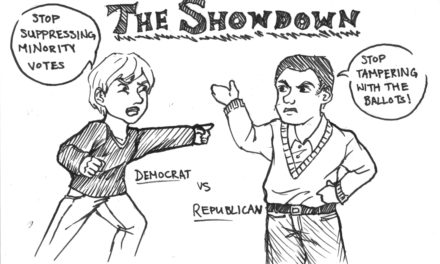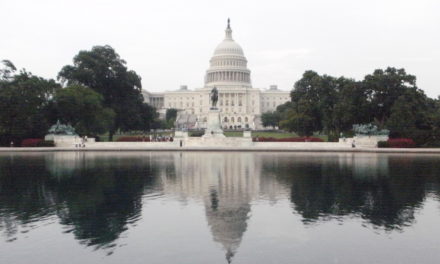The United States already has one of the lowest voter turnout rates among developed countries. Georgia Secretary of State and Republican gubernatorial candidate Brian Kemp is exacerbating the problem by curtailing access to the state’s ballot boxes.
Kemp’s state department purged 1.5 million Georgians from the voter rolls ahead of the 2016 election, according to the Brennan Center, twice as many as the state purged between 2008 and 2012. The state also shuttered 214 voting precincts, or 8 percent, since the 2012 election. And earlier this month, Kemp’s “exact match” voter registration law placed 53,000 voters on hold, a majority of them African-American. 47,000 voters are still pending, and although these individuals can still vote with proper identification, it’s yet another unnecessary burden placed disproportionately upon minority voters.
Fortunately, Kemp’s “exact match” law was effectively overruled for the midterms on Oct. 24, when a federal judge ordered Georgia officials to stop rejecting absentee ballots without letting voters fix them first. Similar “exact match” laws have already been struck down in New Hampshire; there is little reason for their imposition in the first place. Voter fraud, the justification floated by the Kemp campaign, has been repeatedly proven to be a myth.
Even if voter fraud were a legitimate problem, Kemp should not be in charge of election oversight. Both former secretaries of state and gubernatorial candidates Karen Handel and Max Cleland resigned during their bids for office. Even though Democrats Cathy Cox and Lewis Massey did not resign, they also lost their party’s primary and did not end up running. Kemp’s candidacy demands that he at least temporarily vacate his secretary of state position, and his failure to do so is a stain on his candidacy. This is a simple case of a conflict of interest. Even former President and Emory University Distinguished Professor Jimmy Carter has called on Kemp to relinquish his position out of concern for “voter confidence in the upcoming election.”
Carter also calls into question Georgia’s troubled history of voting, noting the “undeniable racial discrimination of the past.” The resurgence in voter suppression since Shelby County v. Holder is not historical happenstance. When the Supreme Court overturned section five of the 1965 Voting Rights Act that forced certain states to have proposed voting restrictions pre-cleared by the federal government, it opened the floodgates for a revival of the discrimination America supposedly left behind. Without this check on state governments, the United States has entered “Jim Crow 2.0,” as Charles Howard Candler Professor of African American Studies Carol Anderson wrote in an Oct. 19 op-ed for HuffPost.
In this neck-and-neck election, people should be more concerned with who they vote for, not if they can vote.
Editor’s Note: The Wheel’s Editorial Board endorsed Stacey Abrams in September.
The Editorial Board is composed of Zach Ball, Jacob Busch, Ryan Fan, Andrew Kliewer, Madeline Lutwyche, Boris Niyonzima, Omar Obregon-Cuebas, Shreya Pabbaraju, Isaiah Sirois, Madison Stephens and Kimia Tabatabaei. Editorial Board members Andrew Kliewer and Shreya Pabbaraju recused themselves from writing this editorial because they have worked on the Abrams campaign.
The Editorial Board is the official voice of the Emory Wheel and is editorially separate from the Wheel's board of editors.





